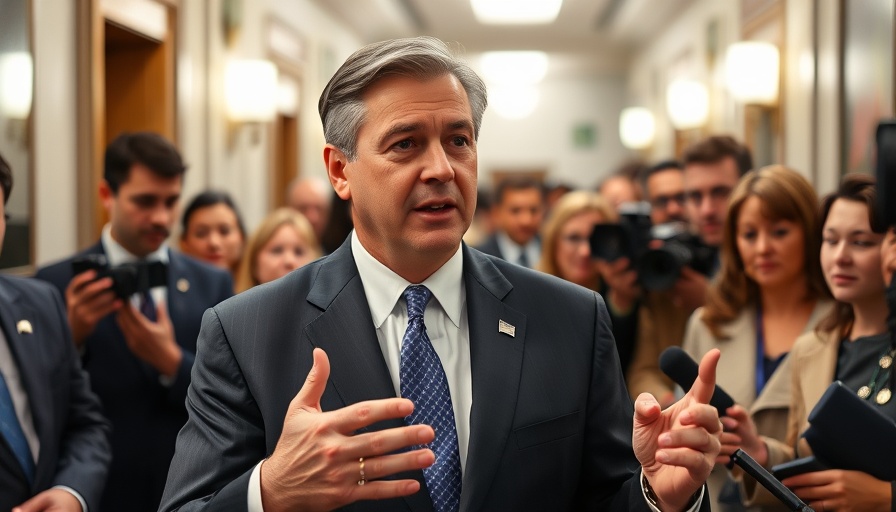
The House's Budget Plan: A Turning Point for Medicaid
On April 10, 2025, the U.S. House of Representatives passed a controversial budget resolution that could significantly impact the Medicaid program, which currently supports nearly 80 million Americans. The resolution, approved by a narrow margin of 216 to 214, sets the stage for potential cuts that may threaten the stability of this essential safety-net insurance program. House Speaker Mike Johnson expressed optimism about this victory, even as dissent within his own party raises questions about the political ramifications of such cuts.
Implications of the Budget Cuts
The resolution outlines $4 billion in budget reductions, well below the initial goal of at least $1.5 trillion targeting various government spending areas. However, the specifics regarding which programs will face cuts remain vague. This uncertainty leaves many questioning how the budget's provisions may affect their access to health and wellness resources. The possibility of reductions in Medicaid could lead to increased healthcare costs for low-income families, which is a critical concern for voters across the political spectrum.
Community Impact: Who Will Feel the Effects?
Medicaid acts as a lifeline for individuals reliant on its support for their health needs. Health professionals like Chip Kahn, the president of the Federation of American Hospitals, have voiced concerns that reducing funding could adversely impact hospitals that heavily depend on Medicaid reimbursements. In addition, other healthcare programs may also see funding pulled back, exacerbating an already strained system faced with higher tariffs on medical supplies and changing regulations.
Political Challenges and Public Opinion
Despite the resolution's passing, imposing cuts to Medicaid may prove politically unfavorable for Republicans. Many Republican voters, including those who supported former President Trump, oppose cuts to Medicaid due to the program's critical role in healthcare access. Political analysts predict potential backlash in upcoming elections if these cuts are enacted, as even some Republican lawmakers express doubt about the wisdom of trimming Medicaid funding. As the debate unfolds, one question remains: will lawmakers heed their constituents' demand for accessible, reliable health coverage?
Future Predictions: What's Next for Medicaid?
As the budget reconciliation process begins, the focus will shift to how legislators will draft specific laws to align with the budget resolution. This scenario creates a critical opportunity for advocates and community members to engage with their elected officials, emphasizing the importance of Medicaid for their health and wellness. With tensions rising, the parties must navigate these discussions carefully, weighing necessary fiscal reductions against the potential harm to the American public’s well-being.
What’s at stake is not only the funding but also America's commitment to supporting health and wellness across all demographics. If Medicaid is compromised, many could lose access to essential healthcare services, impacting long-term health outcomes nationwide.
Call to Action: Get Involved
The upcoming decisions on the budget and Medicaid present a crucial moment for American society. Community members are encouraged to engage in open discussions with their representatives, advocating for ways to protect essential health programs like Medicaid while considering fiscal responsibilities. By voicing concerns and participating in local health and wellness events, individuals can ensure that their needs and those of their communities are prioritized in these discussions.
 Add Row
Add Row  Add
Add 




 Add Row
Add Row  Add
Add 


Write A Comment